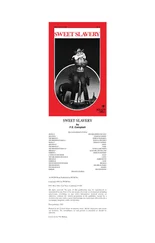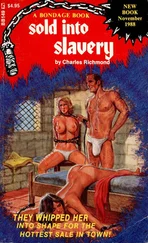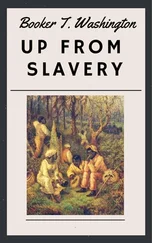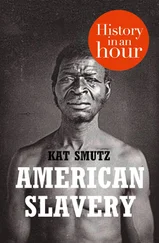Theodore Dwight Weld - American Slavery as It is - Testimonies
Здесь есть возможность читать онлайн «Theodore Dwight Weld - American Slavery as It is - Testimonies» — ознакомительный отрывок электронной книги совершенно бесплатно, а после прочтения отрывка купить полную версию. В некоторых случаях можно слушать аудио, скачать через торрент в формате fb2 и присутствует краткое содержание. Жанр: unrecognised, на английском языке. Описание произведения, (предисловие) а так же отзывы посетителей доступны на портале библиотеки ЛибКат.
- Название:American Slavery as It is: Testimonies
- Автор:
- Жанр:
- Год:неизвестен
- ISBN:нет данных
- Рейтинг книги:4 / 5. Голосов: 1
-
Избранное:Добавить в избранное
- Отзывы:
-
Ваша оценка:
- 80
- 1
- 2
- 3
- 4
- 5
American Slavery as It is: Testimonies: краткое содержание, описание и аннотация
Предлагаем к чтению аннотацию, описание, краткое содержание или предисловие (зависит от того, что написал сам автор книги «American Slavery as It is: Testimonies»). Если вы не нашли необходимую информацию о книге — напишите в комментариях, мы постараемся отыскать её.
"American Slavery As It Is" is a book composed of first-hand accounts of slavery and its horrors. The work focuses on the afflictions that slaves faced, covering their diet, clothing, housing, and working conditions. Harriet Beecher Stowe used «American Slavery As It Is» as the direct inspiration for her novel, Uncle Tom's Cabin.
American Slavery as It is: Testimonies — читать онлайн ознакомительный отрывок
Ниже представлен текст книги, разбитый по страницам. Система сохранения места последней прочитанной страницы, позволяет с удобством читать онлайн бесплатно книгу «American Slavery as It is: Testimonies», без необходимости каждый раз заново искать на чём Вы остановились. Поставьте закладку, и сможете в любой момент перейти на страницу, на которой закончили чтение.
Интервал:
Закладка:
Table of Contents
I feel it my duty to tell some things that I know about slavery, in order, if possible, to awaken more feeling at the North in behalf of the slave. The treatment of the slaves on the plantations where I had the greatest opportunity of getting knowledge, was not so bad as that on some neighboring estates, where the owners were noted for their cruelty. There were, however, other estates in the vicinity, where the treatment was better; the slaves were better clothed and fed, were not worked so hard, and more attention was paid to their quarters.
The scenes that I have witnessed are enough to harrow up the soul; but could the slave be permitted to tell the story of his sufferings, which no white man, not linked with slavery, is allowed to know, the land would vomit out the horrible system, slaveholders and all, if they would not unclinch their grasp upon their defenceless victims.
I spent eleven winters, between the years 1824 and 1835, in the state of North Carolina, mostly in the vicinity of Wilmington; and four out of the eleven on the estate of Mr. John Swan, five or six miles from that place. There were on his plantation about seventy slaves, male and female: some were married, and others lived together as man and wife, without even a mock ceremony. With their owners generally, it is a matter of indifference; the marriage of slaves not being recognized by the slave code. The slaves, however, think much of being married by a clergyman.
The cabins or huts of the slaves were small, and were built principally by the slaves themselves, as they could find time on Sundays and moonlight nights; they went into the swamps, cut the logs, backed or hauled them to the quarters, and put up their cabins.
When I first knew Mr. Swan's plantation, his overseer was a man who had been a Methodist minister. He treated the slaves with great cruelty. His reason for leaving the ministry and becoming an overseer, as I was informed, was this: his wife died, at which providence he was so enraged, that he swore he would not preach for the Lord another day. This man continued on the plantation about three years; at the close of which, on settlement of accounts, Mr. Swan owed him about $400, for which he turned him out a negro woman, and about twenty acres of land. He built a log hut, and took the woman to live with him; since which, I have been at his hut, and seen four or five mulatto children. He has been appointed a justice of the peace, and his place as overseer was after-wards occupied by a Mr. Galloway.
It is customary in that part of the country, to let the hogs run in the woods. On one occasion a slave caught a pig about two months old, which he carried to his quarters. The overseer, getting information of the fact, went to the field where he was at work, and ordered him to come to him. The slave at once suspected it was something about the pig, and fearing punishment, dropped his hoe and ran for the woods. He had got but a few rods, when the overseer raised his gun, loaded with duck shot, and brought him down. It is a common practice for overseers to go into the field armed with a gun or pistols, and sometimes both. He was taken up by the slaves and carried to the plantation hospital, and the physician sent for. A physician was employed by the year to take care of the sick or wounded slaves. In about six weeks this slave got better, and was able to come out of the hospital. He came to the mill where I was at work, and asked me to examine his body, which I did, and counted twenty-six duck shot still remaining in his flesh, though the doctor had removed a number while he was laid up.
There was a slave on Mr. Swan's plantation, by the name of Harry, who, during the absence of his master, ran away and secreted himself in the woods. This the slaves sometimes do, when the master is absent for several weeks, to escape the cruel treatment of the overseer. It is common for them to make preparations, by secreting a mortar, a hatchet, some cooking utensils, and whatever things they can get that will enable them to live while they are in the woods or swamps. Harry staid about three months, and lived by robbing the rice grounds, and by such other means as came in his way. The slaves generally know where the runaway is secreted, and visit him at night and on Sundays. On the return of his master, some of the slaves were sent for Harry. When he came home he was seized and confined in the stocks. The stocks were built in the barn, and consisted of two heavy pieces of timber, ten or more feet in length, and about seven inches wide; the lower one, on the floor, has a number of holes or places cut in it, for the ancles; the upper piece, being of the same dimensions, is fastened at one end by a hinge, and is brought down after the ancles are placed in the holes, and secured by a clasp and padlock at the other end. In this manner the person is left to sit on the floor. Harry was kept in the stocks day and night for a week, and flogged every morning. After this, he was taken out one morning, a log chain fastened around his neck, the two ends dragging on the ground, and he sent to the field, to do his task with the other slaves. At night he was again put in the stocks, in the morning he was sent to the field in the same manner, and thus dragged out another week.
The overseer was a very miserly fellow, and restricted his wife in what are considered the comforts of life--such as tea, sugar, &c. To make up for this, she set her wits to work, and, by the help of a slave, named Joe, used to take from the plantation whatever she could conveniently, and watch her opportunity during her husband's absence, and send Joe to sell them and buy for her such things as she directed. Once when her husband was away, she told Joe to kill and dress one of the pigs, sell it, and get her some tea, sugar, &c. Joe did as he was bid, and she gave him the offal for his services. When Galloway returned, not suspecting his wife, he asked her if she knew what had become of his pig. She told him she suspected one of the slaves, naming him, had stolen it, for she had heard a pig squeal the evening before. The overseer called the slave up, and charged him with the theft. He denied it, and said he knew nothing about it. The overseer still charged him with it, and told him he would give him one week to think of it, and if he did not confess the theft, or find out who did steal the pig, he would flog every negro on the plantation; before the week was up it was ascertained that Joe had killed the pig. He was called up and questioned, and admitted that he had done so, and told the overseer that he did it by the order of Mrs. Galloway, and that she directed him to buy some sugar, &c. with the money. Mrs. Galloway gave Joe the lie; and he was terribly flogged. Joe told me he had been several times to the smoke-house with Mrs. G, and taken hams and sold them, which her husband told me he supposed were stolen by the negroes on a neighboring plantation. Mr. Swan, hearing of the circumstance, told me he believed Joe's story, but that his statement would not be taken as proof; and if every slave on the plantation told the same story it could not be received as evidence against a white person.
To show the manner in which old and worn-out slaves are sometimes treated, I will state a fact Galloway owned a man about seventy years of age. The old man was sick and went to his hut; laid himself down on some straw with his feet to the fire, covered by a piece of an old blanket, and there lay four or five days, groaning in great distress, without any attention being paid him by his master, until death ended his miseries; he was then taken out and buried with as little ceremony and respect as would be paid to a brute.
There is a practice prevalent among the planters, of letting a negro off from severe and long-continued punishment on account of the intercession of some white person, who pleads in his behalf, that he believes the negro will behave better that he promises well, and he believes he will keep his promise, &c. The planters sometimes get tired of punishing a negro, and, wanting his services in the field, they get some white person to come, and, in the presence of the slave, intercede for him. At one time a negro, named Charles, was confined in the stocks in the building where I was at work, and had been severely whipped several times. He begged me to inter cede for him and try to get him released. I told him I would; and when his master came in to whip him again, I went up to him and told him I had been talking with Charles, and he had promised to behave better, &c., and requested him not to punish him any more, but to let him go. He then said to Charles, "As Mr. Caulkins has been pleading for you, I will let you go on his account;" and accordingly released him.
Читать дальшеИнтервал:
Закладка:
Похожие книги на «American Slavery as It is: Testimonies»
Представляем Вашему вниманию похожие книги на «American Slavery as It is: Testimonies» списком для выбора. Мы отобрали схожую по названию и смыслу литературу в надежде предоставить читателям больше вариантов отыскать новые, интересные, ещё непрочитанные произведения.
Обсуждение, отзывы о книге «American Slavery as It is: Testimonies» и просто собственные мнения читателей. Оставьте ваши комментарии, напишите, что Вы думаете о произведении, его смысле или главных героях. Укажите что конкретно понравилось, а что нет, и почему Вы так считаете.












